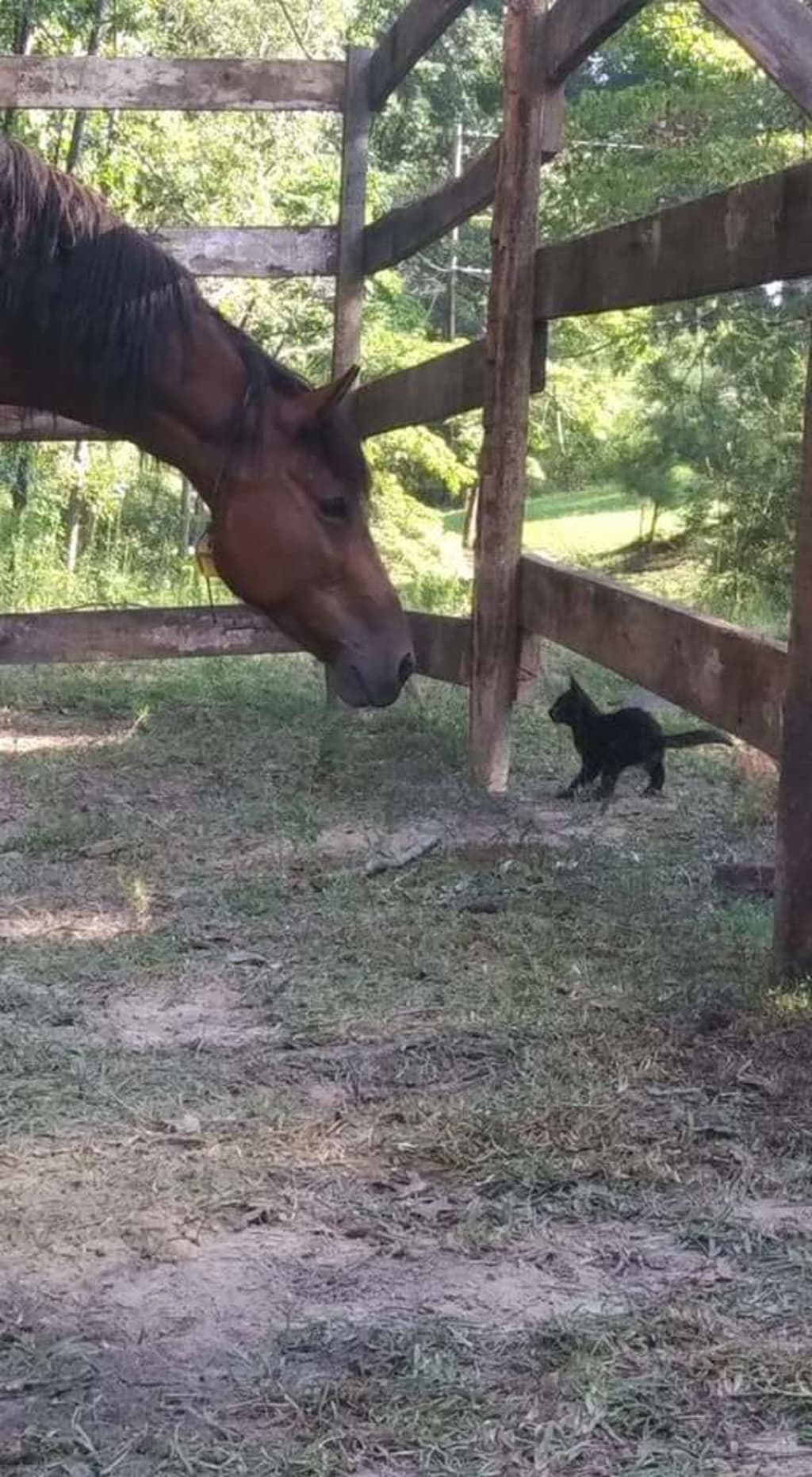
This article is in response to Judith Tarr's article “Dreaming of Wild Horses”. Here is the link in case anyone wants to check it out:
Dear Ms. Tarr
First I would like to say that I did enjoy the read. However Arabians are not the oldest horse breed. They are in the top 5 but Icelandics and the Caspian are much older. The other thing you got wrong is that domesticated horses absolutely can NOT survive in the wild. Horses do get out but if they are not found quickly they starve, slowly. Domestic horses lack the natural instincts that “feral” horses have. Horses are also creatures of habit.
That aspect of them is why the BLM (bureau of land management) does not drop hay in forage poor areas. The wild horses will get into the habit of the bales being there are won’t migrate. Because of their habitual nature human raised horses can not survive in the wild. You can look up horse rescues all over the country and you will find that many were abandoned in the wild when the owners could no longer afford them.
In your article you said you were disappointed that there were no “Wild horses” left. That all of them were once domesticated, even if that was 100 years ago. I can’t say that I don’t understand what you felt but doesn’t it go along with the idea of “the desire for freedom”? Not to mention the history behind the herds. Have you ever wondered how or why groups of horses are in certain areas?
For example: there is an area of north east California known as the devils garden HMA (herd management area). The horses from that area are known for their drafty look. Big feet, thick bodies, feathered fetlocks, the whole package. Why? Because the ancestors of that herd were draft horses brought to California during the gold rush. They are the descendants of horses that aided in the expansion of the nation.
I am the proud owner of an American Mustang. A Devils Garden mustang to be exact. She was rounded up in 2019 at the age of 11. That means she spent 11 years in the wild. No human interaction, no grain, no vet or farrier care.
My girl spent almost a year as a number.
5880.
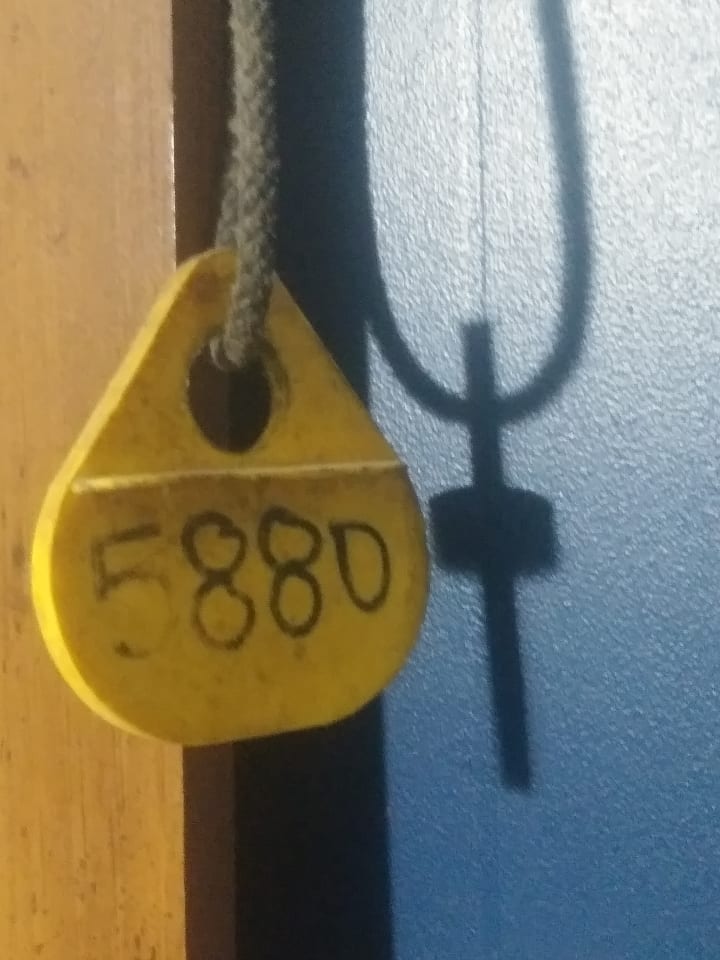
That was the entirety of her identity.
July 2020 she made the long, three day trip from California to Florida on a shared ride. I picked her up July 18th and we made the seven hour drive from north-east Florida to central Alabama. The people that got to spend time with her before I picked her up honestly felt sorry for me. They made comments about how nervous and flighty she was. They gave me the impression that I was going to have a really hard time with her.
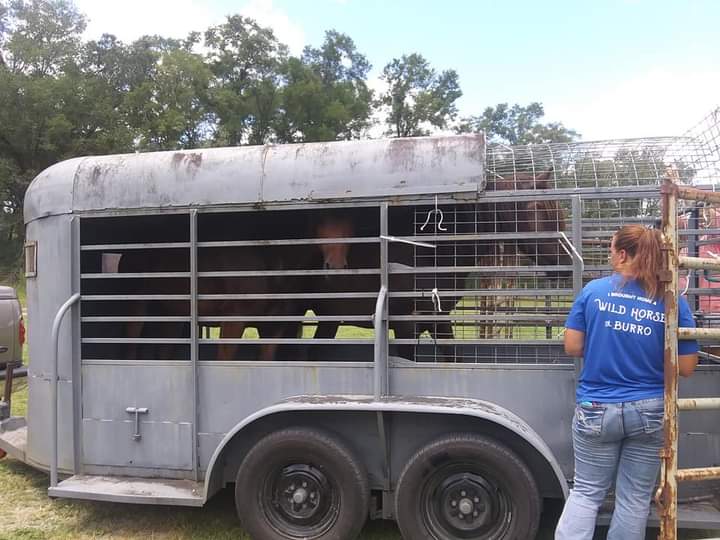
Within a week I was touching her face and got her tag off. She was no longer a number. She had a name, Cahaba.
Incase you’re wondering…
Cahaba is the name of a river that flows through our lovely state. It is has a mostly limestone bottom and a very rare flower grown along its banks. In Choctaw (part of my ancestry) it means water that flows above ground. After watching her USFS video that word described her movements perfectly.
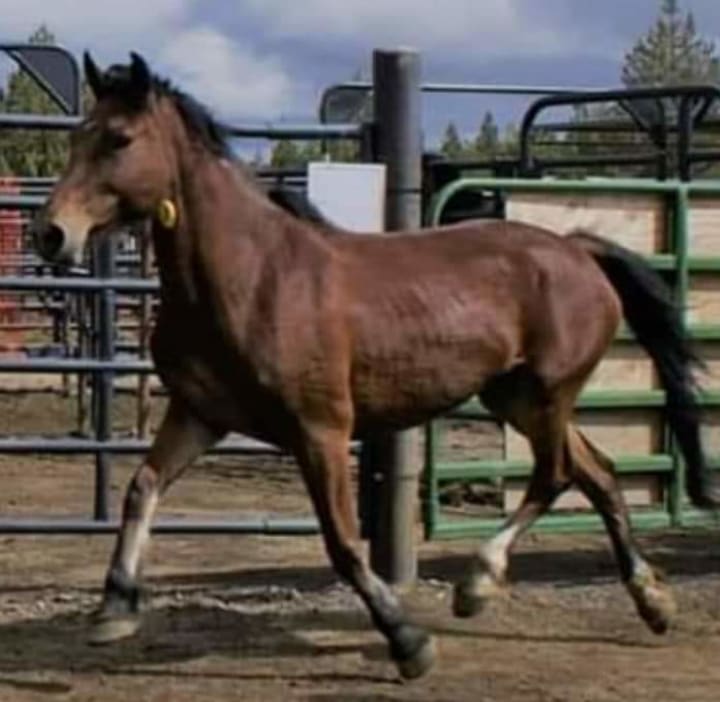
A second week went by and she was being halters and lead outside of her holding pen.
There was not a single glimmer of the flighty mare was a nasty attitude. Well… she still had an attitude but it was a sweet and sassy attitude mares are known for.
I have now had Cahaba over a year. She is the sweetest, sassy-est mare I have ever had the pleasure of getting to know. This mare will follow me through the gates of hell and pin her ears at the devil for looking at us wrong. I can bathe her, pick up her feet, throw a blanket over her and she loves to have her mane braided. She is gun safe, traffic safe, blow up Halloween decorations safe and lives for scratched. She is, as far as anyone else would believe, domesticated. If I hadn’t known her before I would doubt she was ever wild.
But does she miss it? Does she miss her herd, the open plains, the wind in her mane, eagles soaring overhead. Well… to answer your question I will tell you a story.
We live in the middle of no where. Our little property is surrounded by miles upon miles of hunting and logging property. Land that isn’t developed or touched by humans. October 2020 Alabama saw one of the worse storms in history. Straight winds that ripped trees up by the roots and knocked out power for over a week. It also took down an entire line of fencing. I awoke to the fence down and Cabana gone.
I panicked.
I yelled for my sister to come out side and help me look. Before she could join me out side I heard a neigh and the sound of hooves. Cahaba had heard my voice and came trotting up the hill. She happily walked back into her pen and stood quietly munching on her grain while we fixed the fence. She could have easily cantered away into the sunset. I would have never found her again. She could have chosen freedom. She could have returned to the wild. She chose not to. She chose to come to me when she didn’t have anything stopping her from choosing otherwise. Horses do not long for freedom. They prefer loyalty, companionship and trust. Once you earn their trust they give you their loyalty and their love. Even the wildest of horses will choose their herd over freedom, even if their herd has two legs instead of four.
** * **
Now for a PSA
Facebook being all about PETA and animal rights I see anti round up posts all the time. Listen carefully.
If we do not have round ups they will DIE.
You read that correctly. They will die. Due to human encroachment and loss of habitat cougars are endangered. Why is that relevant? Because there are no other predators that would hunt horses. No predators equals no population control. Combine that with cattlemen being cheap and using easy to break or jump fencing they get free food in the way of ranchers.
I do respect our ranchers but let’s face it… truth is truth. They either free range or use the cheapest fencing. That makes wild horses a nuisance animal. Not to mention the ones that block road ways.
I digress…
Because these horses have not been tampered with by humans they are built for longevity. They can easily live to be in their late twenties while still in the wild.
No natural predators plus longevity plus uncontrolled breeding plus limited habitats means many will starve. Many this year will not make it through the winter. THAT is why most roundups take place in the early to late fall.
Round ups save lives.
Do they sit in holding yes. But while in holding they are with their herds. They are fed. They are vetted. They are cared for. Lives that may have ended over a harsh winter will have the chance to live happy lives on the domestic side of the fence.
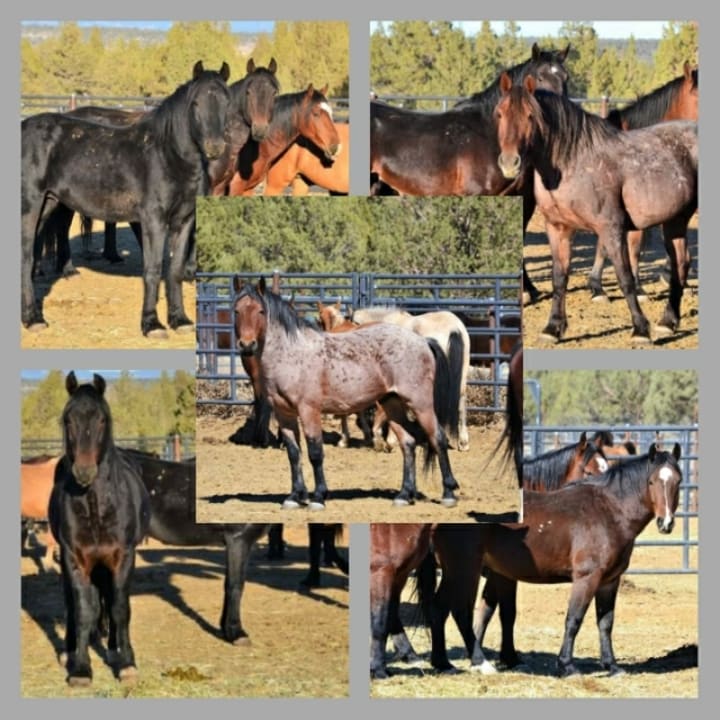
So I ask all my readers. Visit a holding facility. Donate to the Mustang Heritage Foundation.
And if you can… Adopt. You won’t regret it.
** * **
Thank you for reading! If you enjoyed this story give it a heart, if you want to read more, subscribe.
If you were moved enough send me a tip and know that all tips go to Cahaba and helping other mustangs find their forever.
About the Creator
DC Hope
I am a mother, a wife and all the things that comes in that pretty package. i have a passion for romantic and paranormal fiction and psychology. i write for my own sanity and to give a little bit of an escape to those that want to get lost.


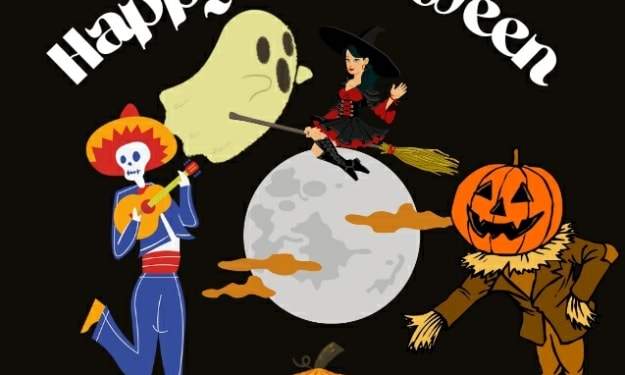

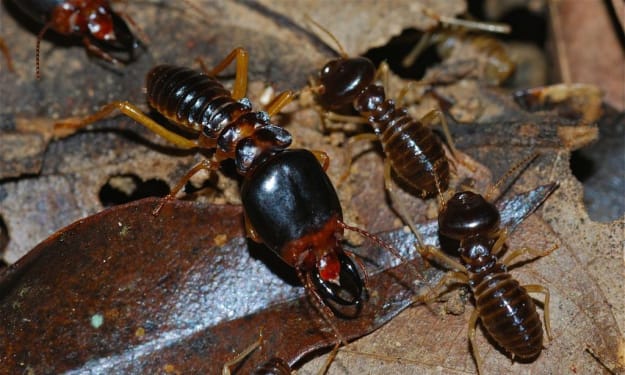

Comments
There are no comments for this story
Be the first to respond and start the conversation.